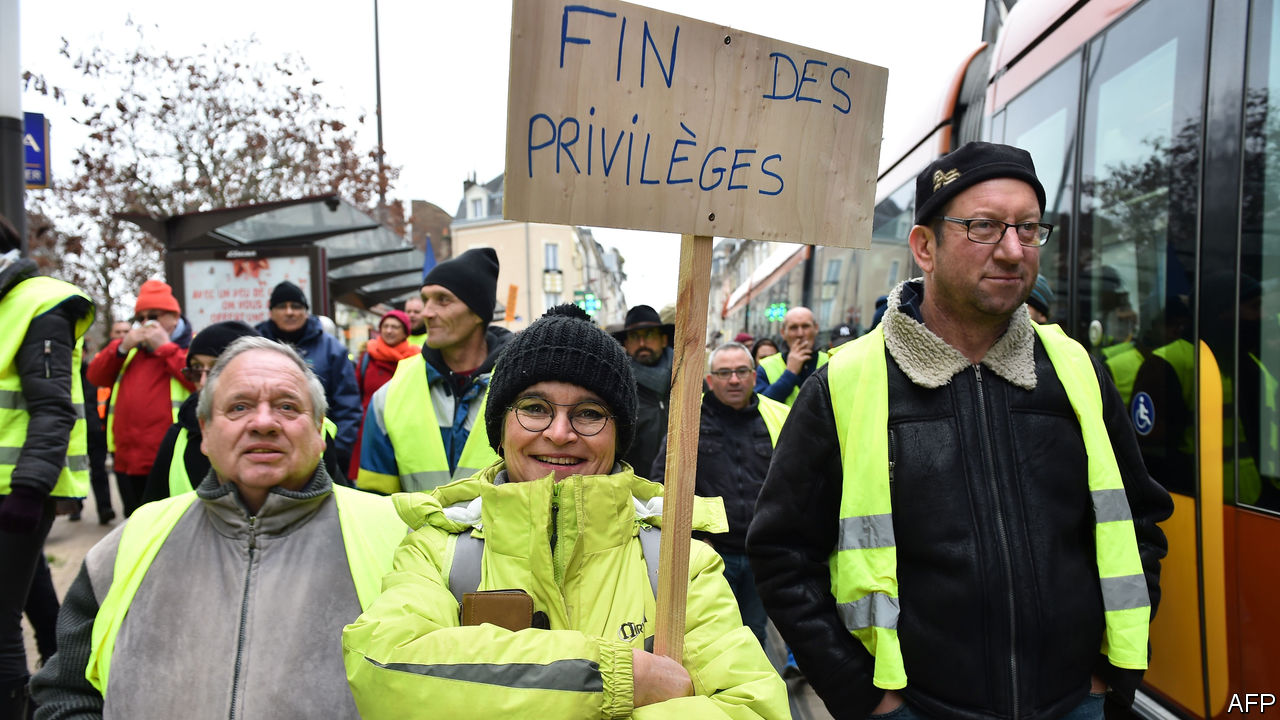But protesters still denounce the “president of the rich”
When emmanuel macron launches his promised “great national debate” on January 15th, he hopes to show a willingness to listen to the popular rage behind the gilets jaunes (yellow jacket) protesters who have been occupying roundabouts and motorway toll booths in anger initially at fuel tax rises, but now with a much longer list of grievances. The French president has asked for ideas on four topics, which he wants to be discussed online and in town halls until mid-March: the environment, democracy, public services and taxes. It was the claim of unfair taxation—and a feeling among protesters that the money raised did them no good—that first mobilised the gilets jaunes. “But what do you do with all that dough?” asked one early gilet jaune in a clip that went viral.
France has a long-standing preference for taxes and spending. Its tax take as well as its level of public spending, which accounts for 57% of gdp, are higher than in any other European Union country. Much goes on subsidising public services, whether riding in high-speed trains or studying at university, that cost users more elsewhere. As Mr Macron pointed out in his new year’s address, France has excellent infrastructure, (mostly) free education and first-rate health care that comes at little direct cost to patients. Such services are often taken for granted. If the French want lower taxes, some of that spending will have to give, too.
France has a long-standing preference for taxes and spending. Its tax take as well as its level of public spending, which accounts for 57% of gdp, are higher than in any other European Union country. Much goes on subsidising public services, whether riding in high-speed trains or studying at university, that cost users more elsewhere. As Mr Macron pointed out in his new year’s address, France has excellent infrastructure, (mostly) free education and first-rate health care that comes at little direct cost to patients. Such services are often taken for granted. If the French want lower taxes, some of that spending will have to give, too.


No comments:
Post a Comment